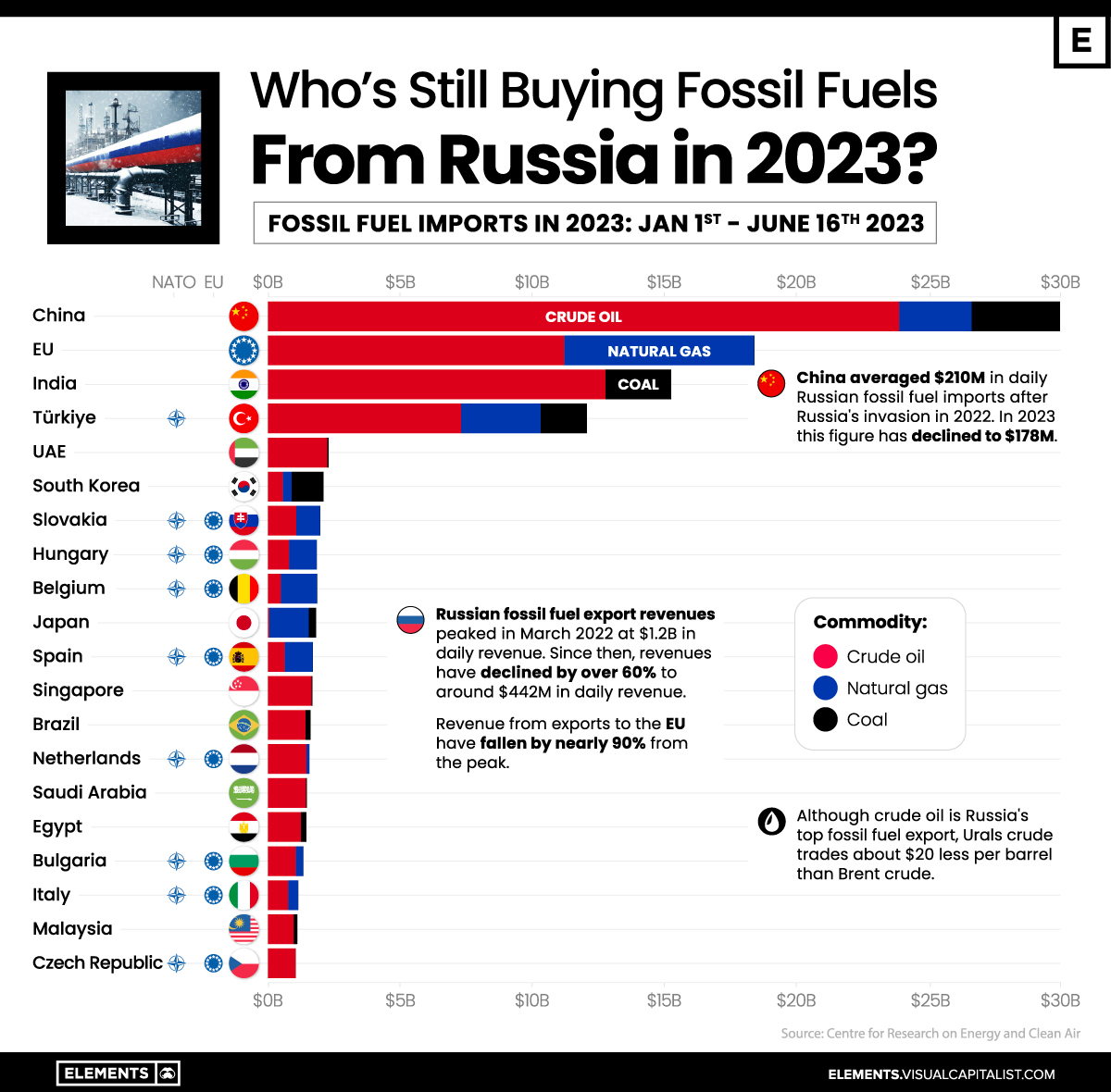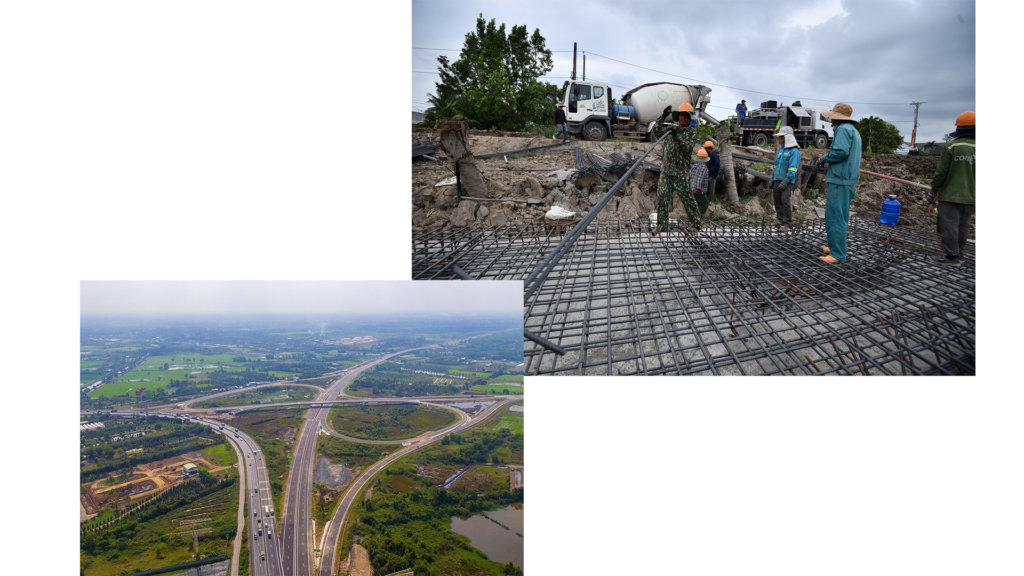
While Russia’s revenues from fossil fuel exports have declined significantly since their peak in March of 2022, many countries are still importing millions of dollars a day worth of fossil fuels from Russia.
Revenue from fossil fuels exported to the EU has declined more than 90% from their peak, but in 2023 the bloc has still imported more than $18 billion of crude oil and natural gas so far.
This graphic uses data from the Centre for Research on Energy and Clean Air (CREA) to visualize the top-importing countries of fossil fuels from Russia so far this year.
China Remains Russia’s Top Fossil Fuel Importer
China continues to be Russia’s top buyer of fossil fuels, with imports reaching $30 billion in 2023 up until June 16, 2023.
With nearly 80% of China’s fuel imports being crude oil, Russia’s average daily revenues from Chinese fossil fuel imports have declined from $210 million in 2022 to $178 million in 2023 largely due to the falling price of Russian crude oil.
Following China are EU nations collectively, which despite no longer importing coal from Russia since August of 2022, still imported $18.4 billion of fossil fuels in a 60/40 split of crude oil and natural gas respectively.
| Country | Russian Fossil Fuel Imports* (Total) | Crude Oil | Natural Gas | Coal | |||||||||
|---|---|---|---|---|---|---|---|---|---|---|---|---|---|
 China China | $30B | $23.9B | $2.7B | $3.3B | |||||||||
 EU EU | $18.4B | $11.2B | $7.2B | $0 | |||||||||
 India India | $15.2B | $12.8B | $0 | $2.5B | |||||||||
 Türkiye Türkiye | $12.1B | $7.3B | $3B | $1.7B | |||||||||
 UAE UAE | $2.3B | $2.3B | $0 | $0 | |||||||||
 South Korea South Korea | $2.1B | $0.6B | $0.3B | $1.2B | |||||||||
 Slovakia Slovakia | $2.0B | $1.1B | $0.9B | $0 | |||||||||
 Hungary Hungary | $1.9B | $0.8B | $1.1B | $0 | |||||||||
 Belgium Belgium | $1.9B | $0.5B | $1.4B | $0 | |||||||||
 Japan Japan | $1.8B | $0 | $1.5B | $0.3B | |||||||||
 Spain Spain | $1.7B | $0.6B | $1.1B | $0 | |||||||||
 Singapore Singapore | $1.7B | $1.7B | $0 | $0 | |||||||||
 Brazil Brazil | $1.6B | $1.4B | $0 | $0.2B | |||||||||
 Netherlands Netherlands | $1.6B | $1.5B | $0.1B | $0 | |||||||||
 Saudi Arabia Saudi Arabia | $1.5B | $1.4B | $0 | $0 | |||||||||
 Egypt Egypt | $1.4B | $1.3B | $0 | $0.2B | |||||||||
 Bulgaria Bulgaria | $1.3B | $1.1B | $0.3B | $0 | |||||||||
 Italy Italy | $1.2B | $0.8B | $0.4B | $0 | |||||||||
 Malaysia Malaysia | $1.1B | $1.0B | $0 | $0.1B | |||||||||
 Czech Republic Czech Republic | $1.0B | $1.1B | $0 | $0 |
*Over the time period of Jan 1, 2023 to June 16, 2023 in U.S. dollars
After China and the EU bloc, India is the next-largest importer of Russian fossil fuels, having ramped up the amount of fossil fuels imported by more than 10x since before Russia’s invasion of Ukraine, largely due to discounted Russian oil.
Türkiye is the only other nation to have imported more than $10 billion worth of Russian fossil fuels in 2023, with every other country having imported fewer than $3 billion worth of fuels from Russia this year.
Navigating the Crude Reality of Oil Exports
Although crude oil is Russia’s chief fossil fuel export, the nation’s Urals crude traded at a $20 per barrel discount to Brent crude throughout most of 2023. While this discount has narrowed to around $16 following Russia’s announcement of further oil export cuts of 500,000 bpd (barrels per day), the price of Urals crude oil remains just 40 cents below the $60 price cap put in place by G7 and EU nations.
Tiếp tục đọc “The Countries Buying Fossil Fuels from Russia in 2023”


